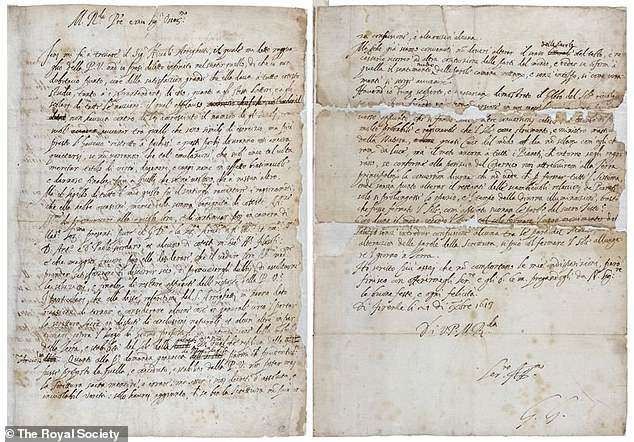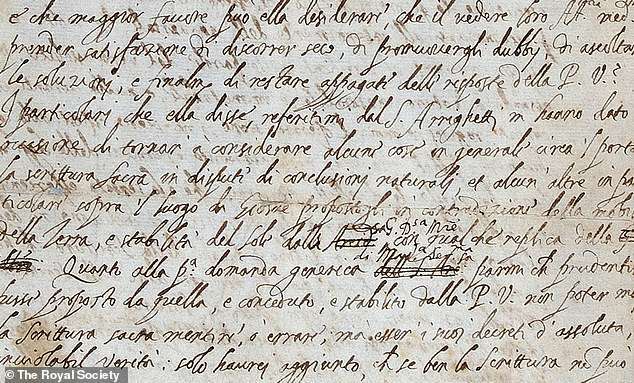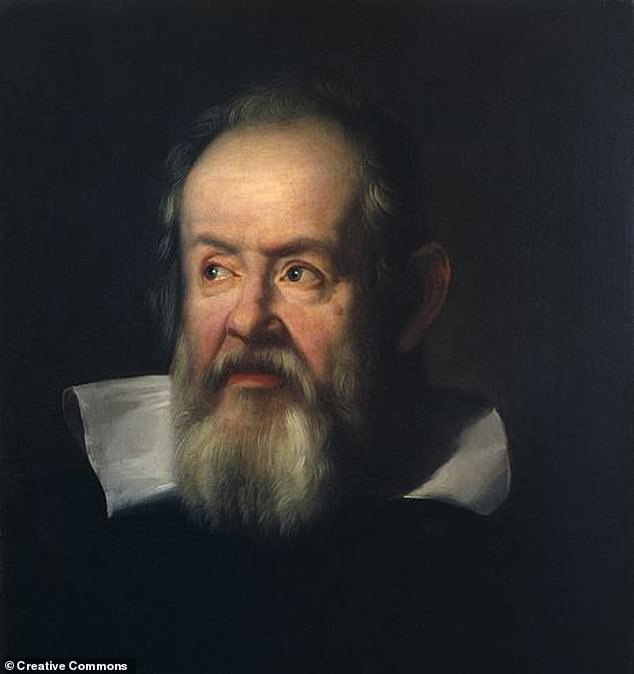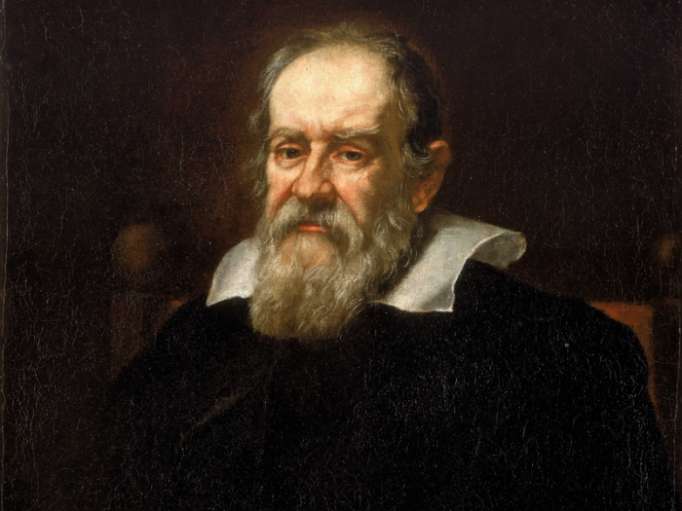In the letter, which had been lost in the Royal Society's library for 250 years, Galileo Galilei set down his argument against the church's belief that the sun orbits the Earth.
It was written to a friend on 21 December 1613 and provides the strongest evidence yet that Galileo toned-down his scientific claims to fool the Inquisition and escape jail.
The letter has parts crossed out and new words added as Galileo attempted to soften his arguments, scientists have revealed.

Galileo is known for discoveries he made using one of the earliest telescopes as well as for fighting with the Catholic church about the position of the sun and the planets.
His studies convinced him that Nicolaus Copernicus had been right 100 years earlier—the Earth revolved around the sun, not the other way around.
However, after he published a paper titled 'Dialogue Concerning the Two Chief World Systems,' in 1632 the Inquisition sentenced him to house arrest for the final nine years of his life.

The Inquisition was a group of institutions within the Catholic Church whose aim was to combat public heresy.
However, a letter that was written 19 years earlier to Benedetto Castelli, a mathematician at the University of Pisa shows that Galileo had initially toned down his beliefs to dupe the church.
This letter was found by Salvatore Ricciardo of the University of Bergamo in the Royal Society library.
The letter is significant because it offers proof of an attempt by the scientist to play down his arguments regarding controversial astronomy ideas.
In the letter he spelled out his views regarding the placement of the sun and planets and his belief that certain sections of the Bible regarding the place of the Earth in the universe should not be taken literally.
For the first time Galileo said that scientific research should be separate from theological doctrine.
The letter made it into the hands of a Dominican friar named Niccolò Lorini who passed a copy of it to church authorities.

Worried that the letter might get him into trouble, Galileo edited certain sections of the original letter to make it more palatable and sent it to a church official, claiming that Lorini had doctored his note.
However, the original edited letter was lost to history.
Without it, historians have never known whether Galileo tried to prevent trouble by diluting his arguments.
Now, that argument seems to have been settled with the discovery of the original letter.
'I thought, 'I can't believe that I have discovered the letter that virtually all Galileo scholars thought to be hopelessly lost,' Dr Ricciardo told the journal Nature.
'It seemed even more incredible because the letter was not in an obscure library, but in the Royal Society library.'
WHO WAS GALILEO?
Galileo, who was born in Pisa in 1564, is considered one of the fathers of modern science.
He became an enemy of the Catholic Church, of which he was a member, by challenging its teachings.
Clerics eventually denounced him to the Roman Inquisition in 1615 over his support of a heliocentric, or Sun-centered, view of the universe.
Although he was cleared of any offence at that time, the Church condemned his belief as ‘false and contrary to Scripture’ and Galileo promised to stop publicising it.
But in 1632, when he defended his views in his most famous work, Dialogue Concerning the Two Chief World Systems, he was again tried by the Inquisition.
It found he was ‘vehemently suspect of heresy’ and Galileo was forced to recant and spend the rest of his life under house arrest.
However, following his death, evidence for a heliocentric universe became so overwhelming that the Vatican’s opposition gradually buckled.
In 1737 they finally allowed his body to be buried in consecrated ground and he now lies in Florence’s Santa Croce church, opposite the tomb of Michelangelo
By now because he was so revered, it was decided that parts of his body should be removed and preserved for posterity.
More about: GALILEO
















































